What future for Switzerland in a globalised world?
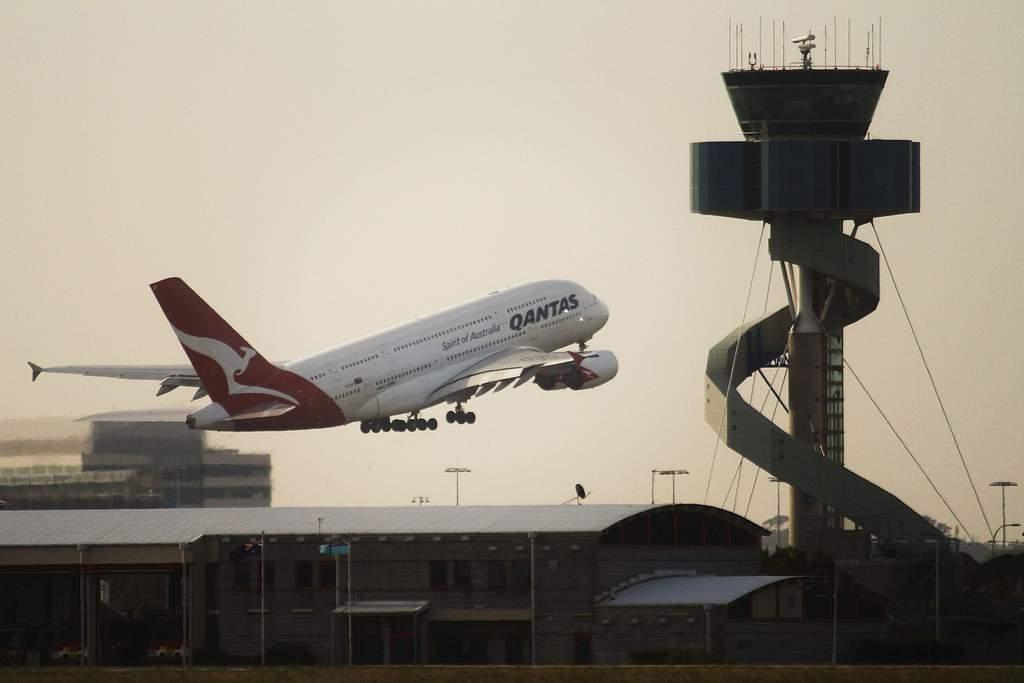
A look back into its 100-year history and glimpses of the future marked a series of speeches given by business experts and representatives from the world of science and research, culture and the media during the Congress of the Swiss Abroad in the capital, Bern.
“Switzerland is known traditionally for its humanitarian activities and its businesses,” said Mauro Dell’Ambrogio, State Secretary for Education, Research and InnovationExternal link.
“But it is increasingly recognised for its system of education and research,” he continued.
Dell’Ambrogio pointed out the good reputation of Swiss universities and technical colleges of higher education in an international context and the importance of cooperation across national borders and continents.
“Mobility plays a key role as scientific activities are extremely connected internationally,” he said.
He cited figures about increased international collaboration, student and research exchanges, private investment in research – beneficial both for universities and small and medium-sized businesses.
Dell’Ambrogio stressed the importance of Switzerland’s continued participation in the prestigious European Horizon 2020 project, at risk following the 2014 decision of Swiss voters approving the re-introduction of immigration quotas for European Union citizens.
He also praised the Swiss system of apprenticeships allowing young people to learn a trade on the job while continuing to go to school. “This is revolutionary for some countries,” he said.
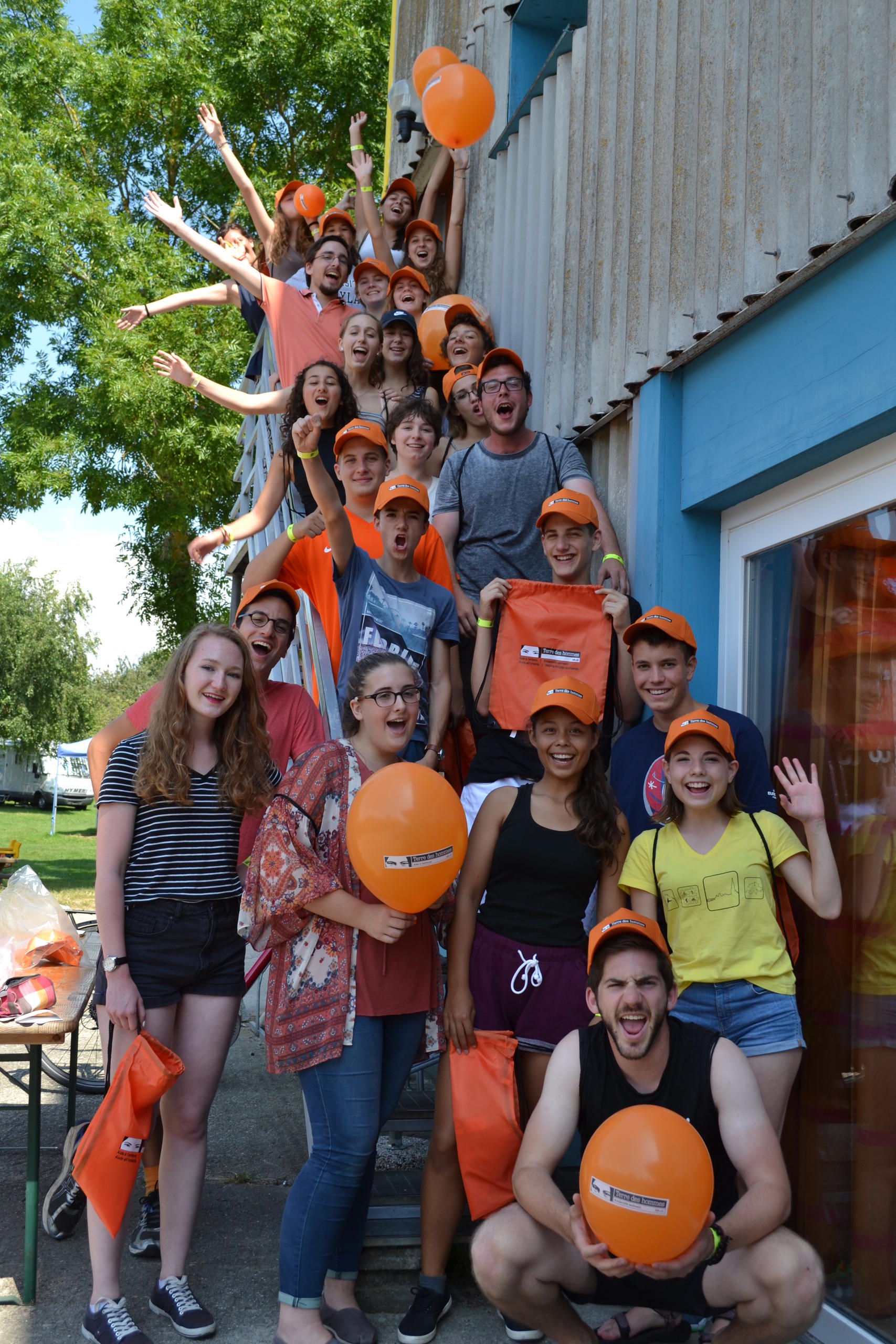
More
Learning how to be Swiss at summer camp
Technology and media
Adrian Beer, CEO of a company active in repairing environmental damage, may have sent a chill down the spine of many a listener in Bern’s casino hall on Saturday with his vision of megacities, population growth and infrastructure projects.
But the chief executive of the Madrid-based Grupo BeerExternal link is optimistic that technology will help master the challenges of the future, notably through boosting cooperation, trade and mobility.
“Creating networks will result in more stability,” he said. Beer is convinced that efforts of the private sector will be more successful than any state can ever be.
Mariano Tschuor of the Swiss Broadcasting CorporationExternal link – swissinfo’s parent company – had a critical look at unstoppable developments in the media sector, the impact of social media, citizen journalism and real time communication.
He pleaded for quality journalism based on expertise, context and reflection to counter manipulation, half-truths and oversimplification.
“Clever people and freedom is what is needed. We don’t want a situation like in Poland, Hungary or in Turkey,” he said.
Madeleine Betschart of the Neuchâtel-based Dürrenmatt CentreExternal link was looking for similarities and synergies between the Swiss abroad and one of the most famous Swiss authors and painters of the 20th century, Friedrich Dürrenmatt.
Migration and patriotism
In his presentation, Gianni D’Amato from the Swiss Forum for Migration and Population StudiesExternal link gave an overview of Swiss emigration and immigration.
Unlike the 19th century, Switzerland is primarily an immigration country these days. Of course there are always people leaving the country either temporarily or for good.
The average age of Swiss emigrants is currently 35 for men and 33 for women. There is more emigration from urban regions of Switzerland than from remote areas nowadays and 7% of all old age pensioners live abroad.
The expert on migration issues from Neuchâtel University concluded that migration has its pros and cons. “Ultimately we have to accept migration as a reality,” he said.
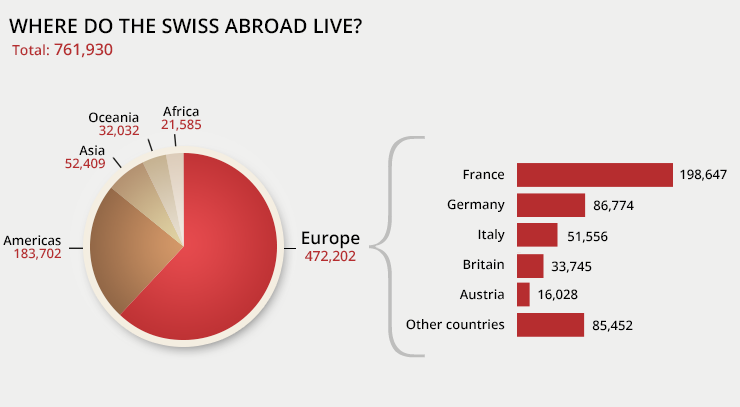
Historian Bernhard Altermatt from Fribourg UniversityExternal link illustrated his speech on the Swiss abroad community and its organisations over the past century with a closer look at different print media used to communicate between the expats and keep up the link to Switzerland.
Asked whether today’s Swiss expats are more or less patriotic than the previous generation, Altermatt said:
“Patriotism is hard to measure. I don’t think it has changed a great deal over the years but it has taken new forms.”
Young generation
The Congress also heard presentations by members of the Youth Parliament of the Swiss Abroad and their visions of the future.
Davide Wüthrich and Wanja Kaufmann called for exchange programmes for young expats to get to know Switzerland’s political system, for greater efforts by the Swiss embassies and consulates to engage young Swiss.
They both showed enthusiasm for cooperating with fellow Swiss abroad around the world and engaging in political activities of the Swiss Abroad community. But they made it clear that the young generation uses different channels of communication, without necessarily neglecting traditional forms.
“Trust us, let us work and give us the means to do so,” said Wüthrich.

In compliance with the JTI standards
More: SWI swissinfo.ch certified by the Journalism Trust Initiative








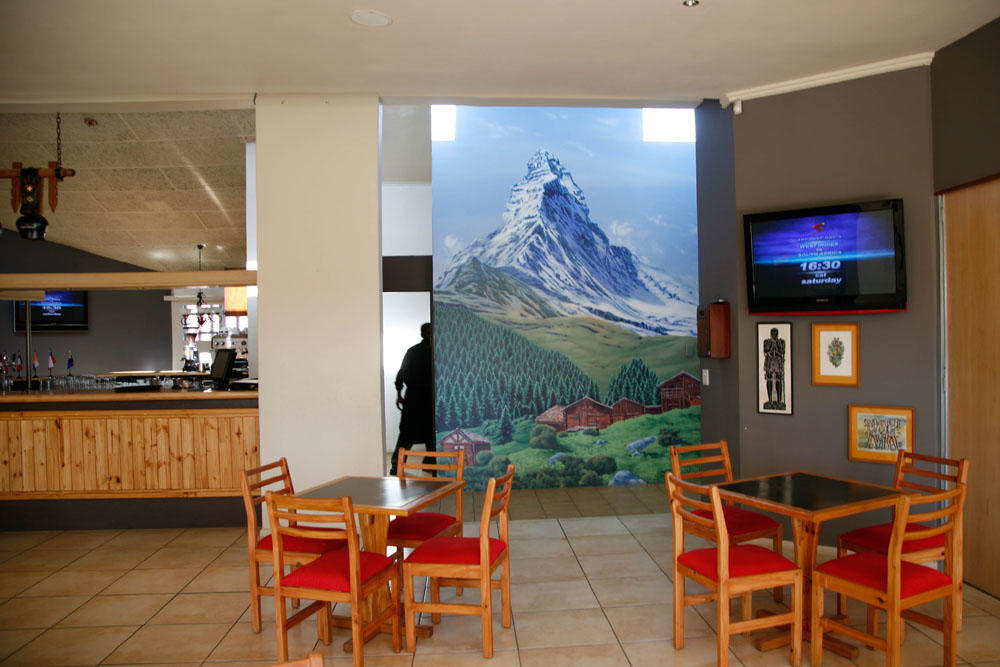

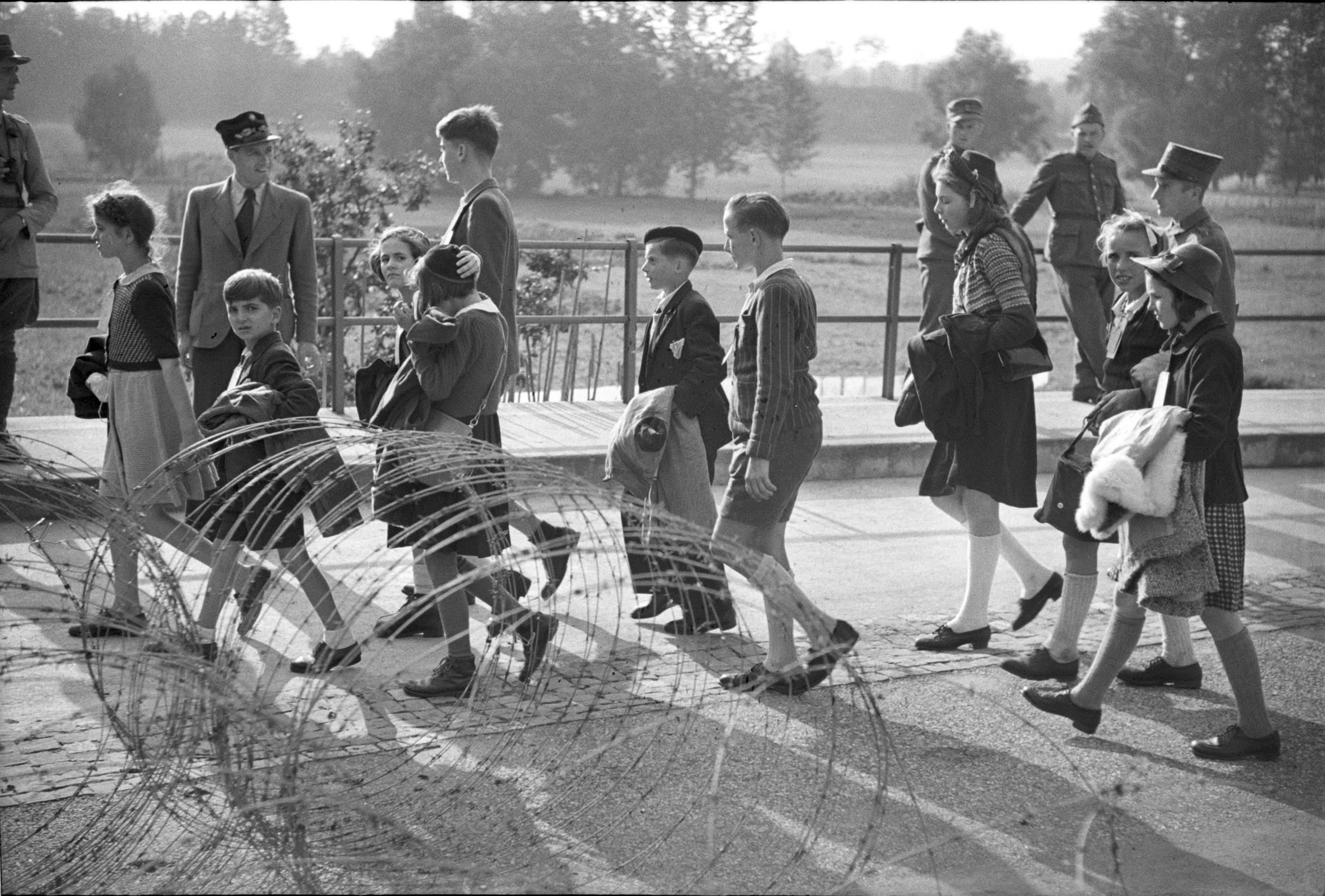


You can find an overview of ongoing debates with our journalists here . Please join us!
If you want to start a conversation about a topic raised in this article or want to report factual errors, email us at english@swissinfo.ch.